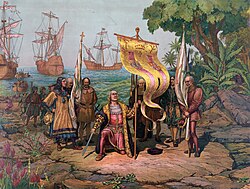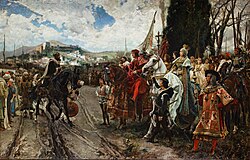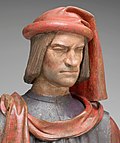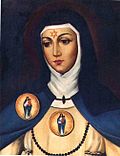
| Years |
|---|
| Millennium |
| 2nd millennium |
| Centuries |
| Decades |
| Years |

| 1492 by topic |
|---|
| Arts and science |
| Leaders |
| Birth and death categories |
| Births – Deaths |
| Establishments and disestablishments categories |
| Establishments – Disestablishments |
| Art and literature |
| 1492 in poetry |
Year 1492 ( MCDXCII ) is a leap year starting on Sunday of the Julian calendar.
Contents
- Events
- January—March
- April—June
- July—September
- October—December
- Unknown dates
- Births
- Deaths
- Exact date unknown
- References
- External links
The year 1492 marked a significant milestone in world history, with the beginning of the invasion and conquest of the "New World" of the Americas, and the "Old World" in Europe, as well as the unification of Spain, the end of Islamic rule in continental Europe, and the expulsion of the Jewish people from Spain.





